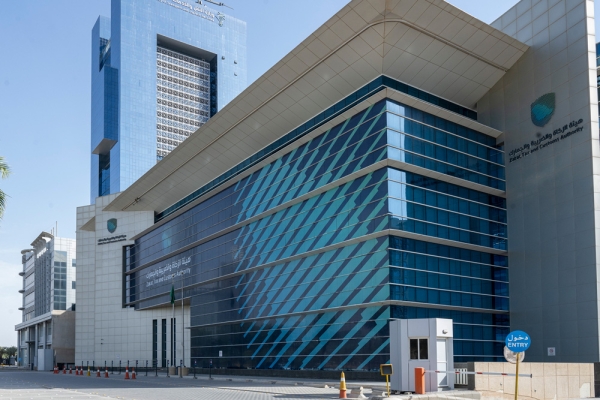

Income Tax on Foreign Establishments in the Kingdom of Saudi Arabia is a mandatory tax imposed by the Zakat, Tax, and Customs Authority in the Kingdom. Income tax is applied to every natural or legal person who carries out an activity in the Kingdom, non-residents who earn income from a source within the Kingdom, resident capital companies on the shares of non-Saudi partners, and individuals engaged in the production of oil and hydrocarbon materials.
Income tax rate to the tax base
The tax is calculated by applying a tax rate to the tax base, which is taxable income. The tax base is calculated for partners or shareholders in independently residing financial companies. However, capital gains achieved through the disposal of securities traded on the Saudi Exchange or abroad, and cash and in-kind distributions, are exempted from tax by law.
The tax rate of the tax base is 20 percent for each of the following:
• A resident capital company.
• A non-Saudi resident natural person who conducts business.
• A nonresident person who conducts business in the Kingdom through a permanent establishment.
• Taxpayers working in the field of natural gas investment only.
As for the taxpayers working in the field of oil and hydrocarbon production, it is as follows:
• 50 percent for the taxpayer whose total capital investments in the Kingdom amount to more than USD375 billion.
• 65 percent for the taxpayer whose total capital investments in the Kingdom amount to more than SAR300 billion and up to SAR375 billion.
• 75 percent for the taxpayer whose total capital investments in the Kingdom amount to more than SAR225 billion and up to SAR300 billion.
• 85 percent for the taxpayer whose total capital investments in the Kingdom amount to no more than SAR225 billion.
Taxable activities
Income tax is applied to various activities of foreign enterprises, e.g., commercial, agricultural, industrial, investment, banking, insurance activities, transportation operations, rental of movable and immovable property, professional activity, or any activity that generates a profit.
Deductible expenses for determining taxable income
Regular expenses incurred to generate taxable income, such as loan returns, depreciation of fixed assets, bad debts reported in the prior tax return, or those resulting from products or services sold, are eligible for deduction. During the fiscal year, provisions are also available for doubtful debts and the reserve for unearned premiums. This is an amount allocated to premiums registered in books that cover risks associated with the tax year or any other year.
A taxpayer may decrease their book profits by the used provisions during the year, by the value of the return to revenues, or by reducing expenses as compared to their registration. Moreover, the contributions of the employer in favor of the employee to the pension funds established regularly, school expenses, and research and development expenses incurred in the Kingdom during the tax year are deducted from the expenses. All of these are according to requirements and controls.
Non-deductible expenses for determining taxable income
Under the Zakat, Tax, and Customs Authority laws and requirements, expenses that are not deductible to determine taxable income include: wages and salaries, compensation paid to shareholders, partners, or family members in exchange for services or property, entertainment expenses, in addition to other expenses, such as financial fines that must be paid to any entity in the Kingdom and natural expenses exceeding personal consumption.
The amounts paid to insurance company agents in excess of 3 percent of the total premiums collected in the Kingdom, whether through the agent or otherwise, as well as amounts paid to main centers outside the Kingdom through branches operating within it, income tax due in the Kingdom or any other country, and any fines associated with it, in addition to the employee’s share in regular retirement funds, are deducted.
Income tax controls on foreign establishments
Income tax controls on foreign establishments vary, including:
- The tax does not apply to a non-Saudi natural person residing in the Kingdom unless he is engaged in a professional, craft, or commercial activity.
- Capital gains of a non-resident Gulf Cooperation Council (GCC) company are subject to tax when selling its share or part of it to a Saudi capital company.
- For a foreign partner who controls less than 50 percent in a mixed Saudi company, the services are not subject to a 15 percent withholding tax. Instead, they are subject to a 5 percent tax.
- No branch in the Kingdom may reduce the income tax imposed on it by the amount of withholding tax paid for technical services provided by its head office outside the Kingdom.
- The non-resident partner in a Saudi resident company, who represents a GCC government entity, is subject to Sharia zakat. Any distributed dividends are subject to withholding tax.
- Losses incurred by capital companies whose ownership or control has been modified or changed by more than 50 percent may not be carried forward, except for losses that occur after the change in ownership, in accordance with the specified controls.
- The foreign facility is not obligated to submit financial statements with the declarations. However, the Zakat, Tax, and Customs Authority may request them whenever it deems necessary.
- The taxpayer may submit an amended tax return, and the authority can reject or accept it or amend it if accepted.
- A branch of a foreign capital company operating in the Kingdom is not allowed to file a tax return for a long fiscal year. This is due to the absence of a memorandum of association.
Related quizzes

